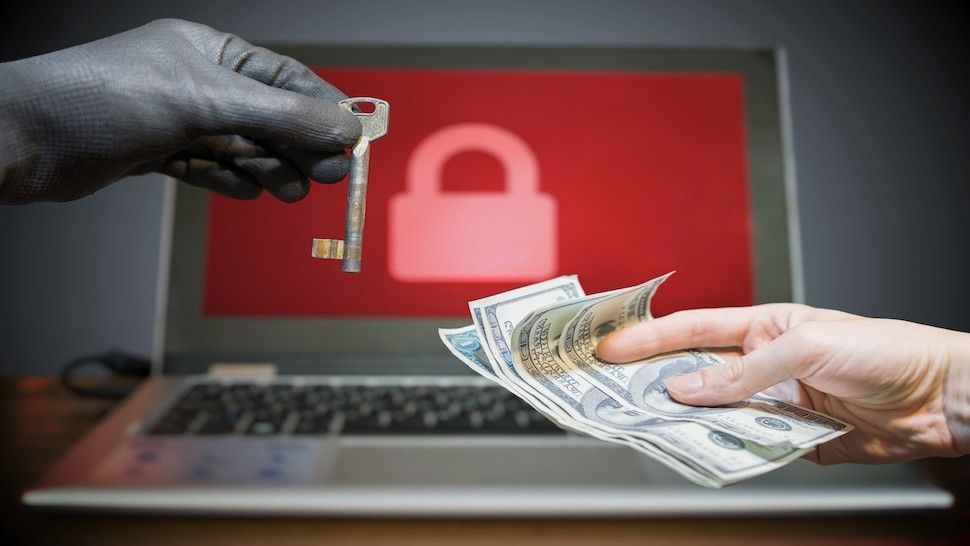Hackers new ransomware tool is very clever
Ransomware attackers have taken thousands of dollars from cities large and small, major corporations and even private citizens. Even if they get paid, the attackers my never give back control of the computer systems they have taken hostage.
For some hackers, the mayhem caused by their malicious attacks is rewarding enough. With much to gain and little to lose, it's no surprise that ransomware is a popular item for hackers to share on the dark web.
In terms of collecting ransoms, hackers have been particularly successful lately. We'll tell you why ransomware attacks are increasing, what other dangers are on the horizon and what you can do to protect your data.
Hackers are sharing generic ransomware
A new report finds that ransomware ranks as the top malware category mentioned in web forums. Insikt Group analyzed almost 4 million posts about malware from forums on the dark and open web during a 12-month period ending in May.
This has been a particularly lucrative year for ransomware hackers. City officials in LaPorte County, Indiana, paid attackers approximately $130,000, while two cities in Florida, Lake City and Riviera City, paid $460,000 and $592,000 respectively to hackers in an effort to get back control of their computers.
Baltimore stood firm and refused to pay ransomware attackers $100,000 to free 10,000 digitally seized computers. Instead, the city is expected to spend about $18 million to get its computer systems completely up and running.
So, why are ransomware attacks on the rise?
"We believe this reflects a growing number of low-level actors developing and sharing generic ransomware on underground forums," the report stated.
Getting the code is only half the trick. Installing it for a jackpot requires "an exploit kit, phishing email, or brute-forced credentials, to install the malware on a victim host before it can be run," the reported stated.
The simplest way for ransomware to muscle its way into a server and take control is through phishing emails. All it takes is for someone to open a malicious attachment in an email and the ransomware is unleashed.
Once ransomware hackers get into a computer system, they compromise it so it can start receiving malicious commands from the attackers' servers. The attackers then have control over the system.
While cybersecurity experts say high-profile hackers are going after targets such as cities, hospitals, and universities, individuals aren't safe either. A recently discovered ransomware, LooCipher, is infecting home computers by using a phishing scam.
Related: Warning: Ransomware getting more devious. Protect your devices now
Protect yourself from a ransomware attack
Falling victim to a ransomware attack is frightening and frustrating. But here are some things you can do to protect yourself and your data:
- Never open risky links or attachments from unsolicited emails
- Make certain your system is up to date
- Ensure your browser is up to date
- Be cautious when opening emails
- Back up your data
If you're looking to back up your computer, our sponsor IDrive can back up all your PCs, Macs and mobile devices into ONE account for one low cost. Save 50% on 2 TB of cloud backup. That's less than $35 for the first year!
Unfortunately, hackers are a prolific bunch and always looking for new ways to steal data. Following ransomware in popularity are the categories of crypters, software that makes malware harder to detect and trojans.
Trojans are a particularly sneaky type of malware that looks legitimate but once it infects a computer, it can seize complete control of it.
It's like a game of Whack-A-Mole. As soon as you get a handle on one type of computer malware, up pops another one.
Also, watch out for rats. Researchers found increases in forum comments about Gh0st RAT -- or Remote Access Trojan -- created by Chinese developers in 2008, as well as Star RAT, another Chinese RAT widely shared on Chinese underground forums.
If companies or cities want to stay on top of what malicious software is gaining traction, the Insikt Group recommends cybersecurity experts monitor the underground forums. That will help would-be victims to build strategies to defend themselves against new malware.
Terrifying new ransomware attacks are some of the worst ever
Ransomware is a serious problem. If you're not careful, visiting a site hosting this malware can cause you to lose all your files, money, or worse. We're breaking down the details on this frightening threat, and what you can do to steer clear of this aggressive group of hackers.
Click or tap here to learn how to avoid ransomware attacks.








Gloss